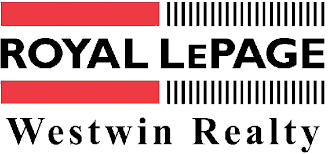Maybe you're buying a home for the first time. Or maybe you're selling your old home to move to something new. Whether buying or selling, you’re involved in an intricate process requiring many specialists. One of these specialists might be a REALTOR®, who’s responsible for making the transaction as easy as possible for you.
There are distinct advantages to having a REALTOR® acting for you in buying or selling a property. With careful selection, you can benefit greatly from the skills of a knowledgeable and sincere REALTOR®. There are a number of approaches to finding a good real estate agent. For example, friends, neighbors, and relatives may have the names of agents that they have dealt with and would recommend. Open houses also provide an opportunity to meet a REALTOR®. Newspaper ads list the names and phone numbers of agents who are active in your area. “For Sale” signs provide an agent’s name and phone number. And real estate firms in your area can be located through the Yellow Pages. Any of course, the Internet is one of the most popular methods of research of REALTORS® and properties.
greatly from the skills of a knowledgeable and sincere REALTOR®. There are a number of approaches to finding a good real estate agent. For example, friends, neighbors, and relatives may have the names of agents that they have dealt with and would recommend. Open houses also provide an opportunity to meet a REALTOR®. Newspaper ads list the names and phone numbers of agents who are active in your area. “For Sale” signs provide an agent’s name and phone number. And real estate firms in your area can be located through the Yellow Pages. Any of course, the Internet is one of the most popular methods of research of REALTORS® and properties.
 Before you meet a REALTOR® who could potentially meet your needs, make sure you have clearly defined what these needs are. Prepare a written outline of your specific criteria in order to assist in shortlisting prospective homes. If you are going to be living with another person, each of you should prepare a written list of needs and wants, compare them, and then come up with a consensus list. For example, determine how much financing you are able to get, the maximum purchase price you are prepared to pay and the type, age, features and location of the home you are seeking. Here are some guidelines to assist you with your selection. Look for an agent who is:
Before you meet a REALTOR® who could potentially meet your needs, make sure you have clearly defined what these needs are. Prepare a written outline of your specific criteria in order to assist in shortlisting prospective homes. If you are going to be living with another person, each of you should prepare a written list of needs and wants, compare them, and then come up with a consensus list. For example, determine how much financing you are able to get, the maximum purchase price you are prepared to pay and the type, age, features and location of the home you are seeking. Here are some guidelines to assist you with your selection. Look for an agent who is:
- a good listener. You want a REALTOR® who will pay attention when you speak, and ask questions which indicate sincere concern about your needs and wishes. This will help in the selection process and save time;
- familiar with the neighborhood you are interested in. Such an agent will be aware of the available listings, will know comparable market prices, and can target the types of property that meet your needs as you have explained them;
- familiar with the buying and selling of residential real estate;
- experienced and knowledgeable in the real estate industry;
- prepared to pre-screen properties so that you are informed only of those that conform to your guidelines for viewing purposes;

- familiar with the various conventional and creative methods of financing, including the effective use of mortgage brokers;
- thorough about the details of homes you are keen on, such as length of time on the market, reason for sale, and price comparisons among similar properties. A realtor who is familiar with the Multiple Listing Service ( MLS®) system can find out a great amount of information in a short period of time, assuming the property is listed on the MLS®;
- candid with you in suggesting a real estate offer price, willing to explain the reasons for the recommendation, and honest with you in terms of advising you whether it is a good time to buy in a particular geographic area you are interested in;
- an effective negotiator, to ensure that your wishes are presented as clearly and persuasively as possible;
- more interested in a long-term relationship than a short-term one. In other words, it is more important to have a satisfied client rather than a quick sale;
- working on a full-time basis, not dabbling in real estate part-time;
- upgrading professional skills and expertise through professional development programs and training;
- good with numbers and familiar with financial calculations
 If you are using a REALTOR® for selling your property, you want to know in writing what the marketing plan will be for your property.
If you are using a REALTOR® for selling your property, you want to know in writing what the marketing plan will be for your property.
Because of the time commitment involved, once you select a REALTOR® you should give him or her your exclusive business. Keep the agent informed of any open houses in which you are interested, and advise other agents that you already have one working for you. If for any reason you are dissatisfied with the realtor who is assisting you, find another realtor.
There are obvious benefits to using a REALTOR®, as outlined in the previous points. One of the key benefits is that the REALTOR® you select (referred to as the “selling” REALTOR®) can act as an intermediary between you and the listing broker. This “arm’s length” negotiating position is an important strategic tactic that can benefit you. As you probably know, the seller pays the sales commission, not the buyer.
Another advantage to the buyer is the opportunity for the REALTOR® to access an MLS® computer, which can provide instant, thorough and accurate information on properties that might interest you. Without a REALTOR® searching on your behalf, you seriously minimize your range of selection and the prospect of concluding the deal at a price that is attractive to you. A REALTOR® can find out research data from the MLS® system more extensively than what is available to the public through access to the www.mls.ca site.
 There are extensive benefits to listing your property with a REALTOR® rather than attempting to sell it on your own. A REALTOR® can:
There are extensive benefits to listing your property with a REALTOR® rather than attempting to sell it on your own. A REALTOR® can:
- list your property on the MLS®, which provides extensive exposure throughout and beyond your market area;
- attempt to qualify and screen potential home buyers in order that only serious buyers who have the interest and financial resources present an offer;
- provide information to the purchaser on matters such as financing and other assistance programs that could facilitate the sale of your property;
- suggest methods of improving the appearance of your property in order to maximize the positive impression and subsequently increase the potential buyer’s interest and sale price;
- explain the real estate market in your area, and do so in a graphic fashion by providing you with MLS® computer printouts of comparable listings or sales patterns in your area, and keep you on an email immediate notification of listings that fit your needs. They can also supply other facts and figures to assist you in realistically establishing a market price;
- free up your time, by using their contacts and marketing techniques in order to facilitate the sale of your property;
- negotiate an agreement on your behalf and according to your instructions, while you remain at arm’s length from the one-on-one negotiating. This improves your negotiating position.
 Whether using a Realtor® to purchase or sell, remember to compare at least three Realtors® before deciding which one to use.
Whether using a Realtor® to purchase or sell, remember to compare at least three Realtors® before deciding which one to use.
You are looking for the five C's Chemistry, Confidence, Competence, Credibility, and Commitment.
The REALTOR® Difference
However, not every licensed or registered broker or salesperson is a REALTOR®. To be a REALTOR®, the agent must be a member of The Canadian Real Estate Association (CREA). And to be a member of CREA, an agent is expected to be:
- Committed to the REALTOR® Code: The code is the accepted standard of conduct for all real estate practitioners who are REALTORS®. It's your guarantee of professional conduct and the quality service. Read more about the REALTOR® Code.
- Knowledgeable about developments in real estate: A REALTOR® can get you the information needed to make an informed decision: comparable prices, neighborhood trends, housing market conditions and more.

- Actively updating education: Through courses, workshops and other professional development, a REALTOR® maintains a high level of current knowledge about real estate.
- Access: REALTORS® have access to Board MLS® Systems, which facilitate the cooperate sale of properties to benefit consumers.
Benefits of a REALTOR®
Whether buying or selling a home, you can trust that your REALTOR® will ensure the transaction is completed competently and professionally. You don’t have to worry about the details – your REALTOR® can take care of them for you. You can get advice from someone with an intimate knowledge of the local housing market. And you can count on the help of a professional who has committed to serve with integrity and competence.

 Why do I need a REALTOR®?
Why do I need a REALTOR®?